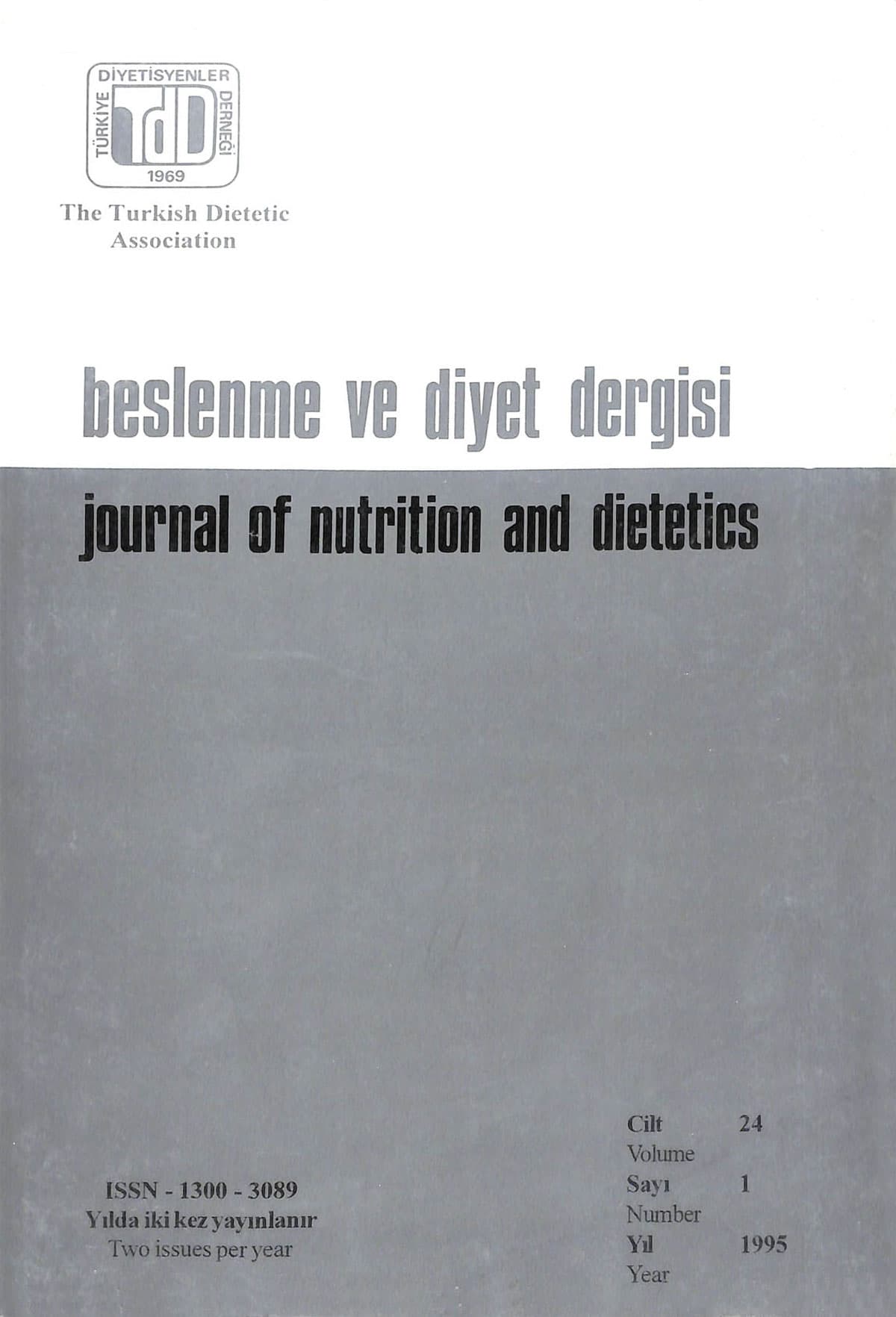The Effect Of Ramadan On Nutrıtıonal Status; Blood Lıpıd, Lıpoproteın, Proteın, Hemoglobın Levels and Relatıonshıps Between These Blood Levels and Nutrıtıonal Status
Keywords:
oruçAbstract
This research has been planned to examine the effect o f Ramadan on nutritional status and blood lipid, lipoprotein, protein, hemoglobin levels and the relationships between these blood levels and nutritional status. According to the results energy intake and body weight reduced in Ramadan, but the differences were not significant (p>0.05). This was reflected in energy, fat, cholesterol, polyunsaturated fatty acids intake reduction, but difference was not significant (p> 0.05). Only vitamin C intake significantly reduced in Ramadan (p< 0.05). Blood triglycerides (TG), veiy low density lipoprotein cholesterol (VLDL-C) levels significantly reduced (p< 0.10). High density lipoprotein cholesterol (HDL-C) did not change, the insignificantly increasing trend in blood total cholesterol (TC) and low density lipoprotein cholesterol (LDL C) were determined. It was found that blood lipids and lipoproteins were significantly related with nutritional status. Correlations between energy intake and TG and VLDL-C (p< 0.01), fat intake and TG were statistically significant (p< 0.05). Also, correlations between vitamin C intake and Hb (p< 0.10), animal protein and albumin levels (p< 0.05), body mass index (BMI) and LDL-C (p< 0.10) were statistically significant.

